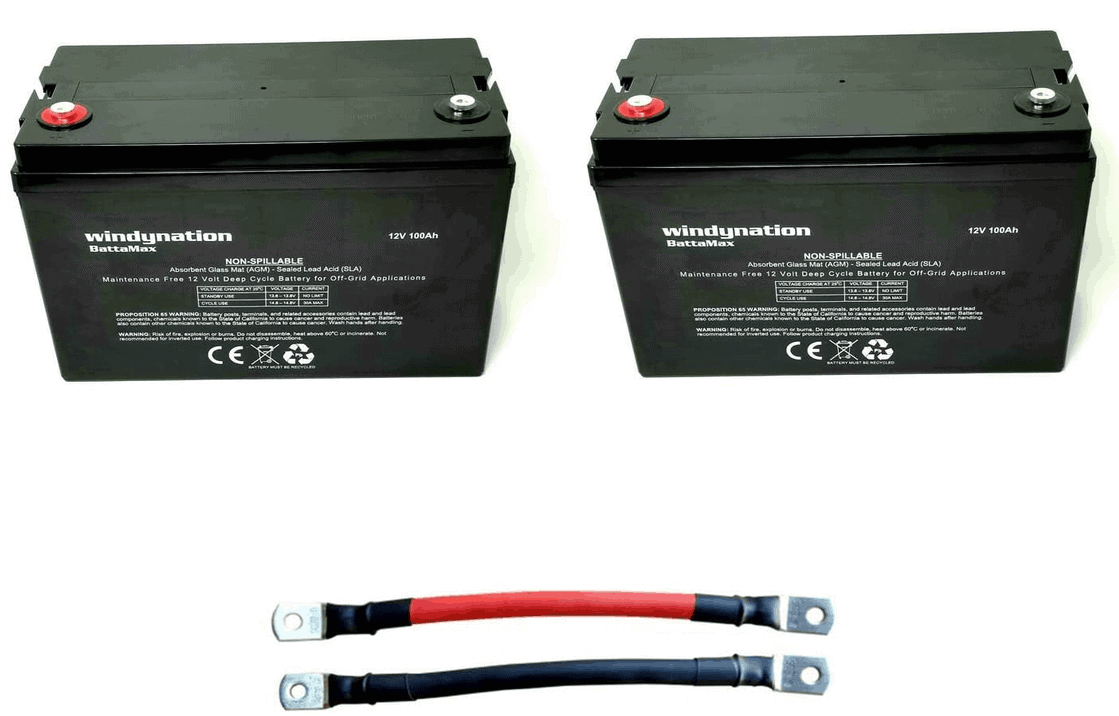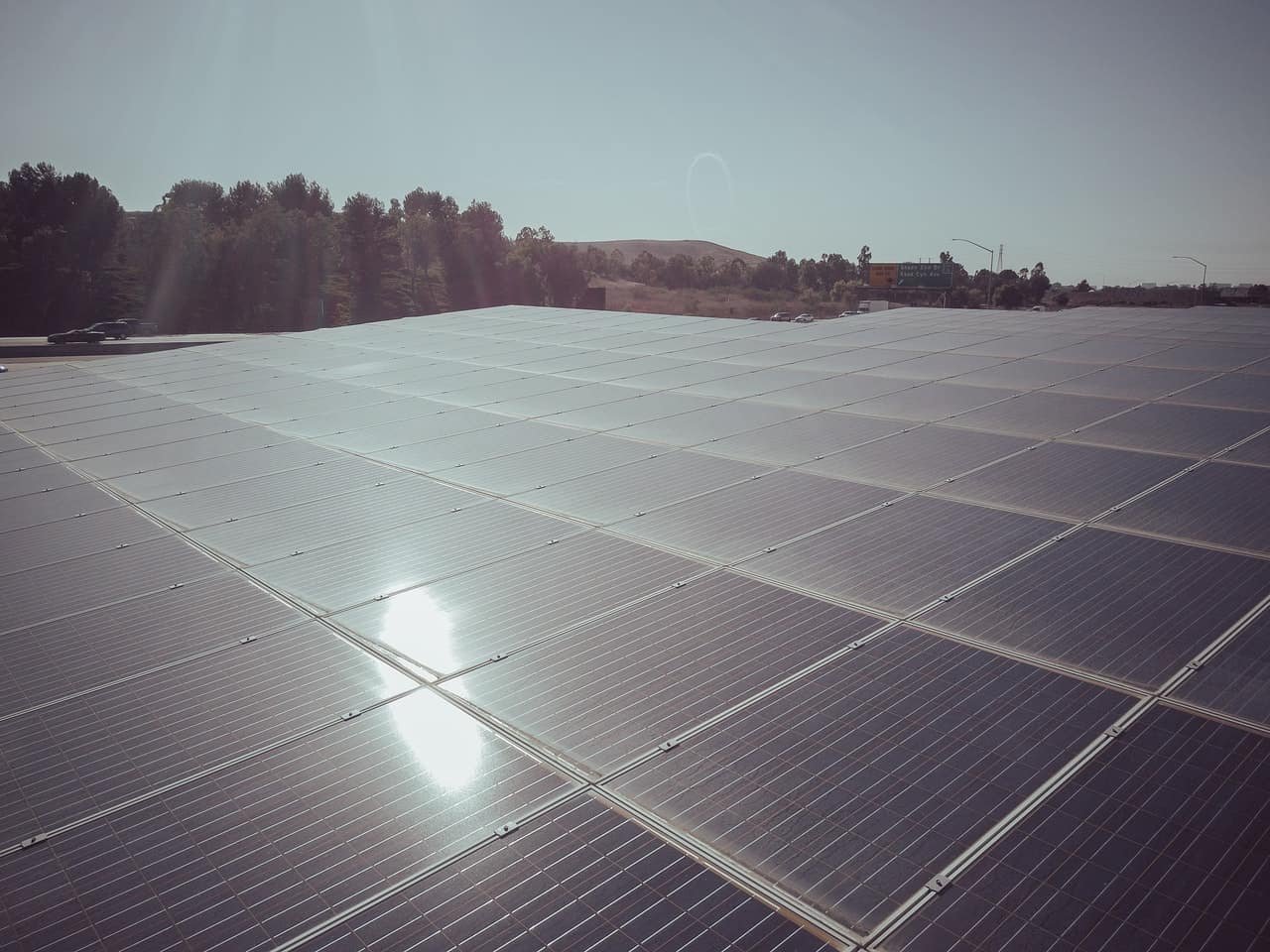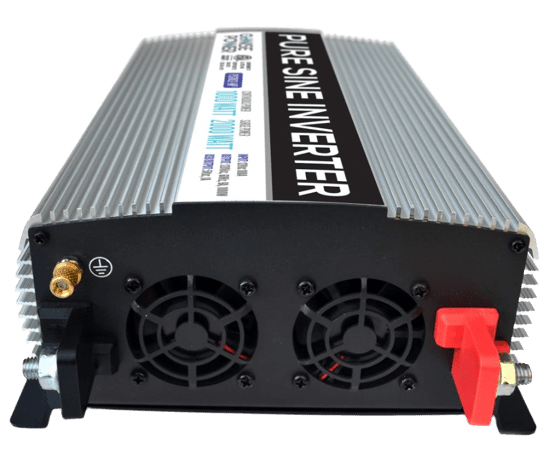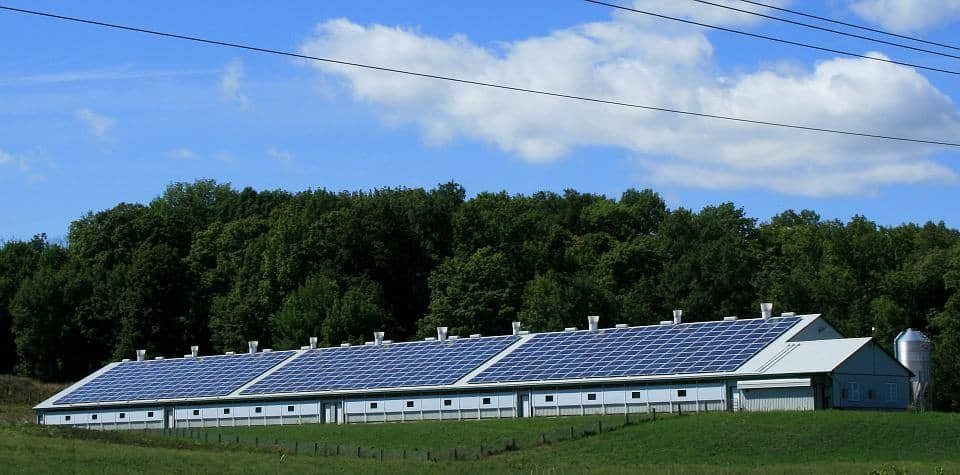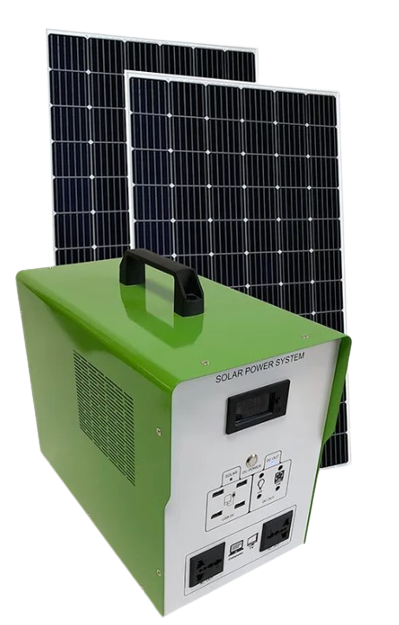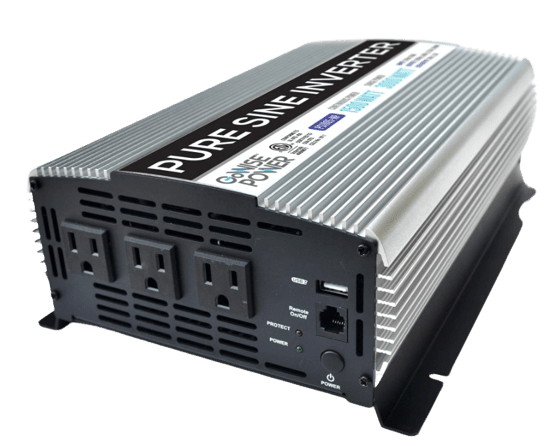While a solar battery system isn’t absolutely necessary if you are planning on staying connected to the grid, it can help provide you with even more discounts or even allow you to go off-grid.
Like any battery, a solar battery system has power that can be drawn upon if no other source of power is available.
There are three main types of solar batteries, which are lithium-ion, lead-acid, and saltwater.
Solar Battery Systems and How They Work
As the name suggests, a solar battery is a battery that is charged with solar energy. It is used often to produce electricity when the solar panels aren’t getting enough sunlight to keep up with the load demand.
Solar batteries work by taking any excess energy that you aren’t using, but your solar panels are producing and storing them until a later date. The amount of energy that can be stored depends on the size battery system you have.
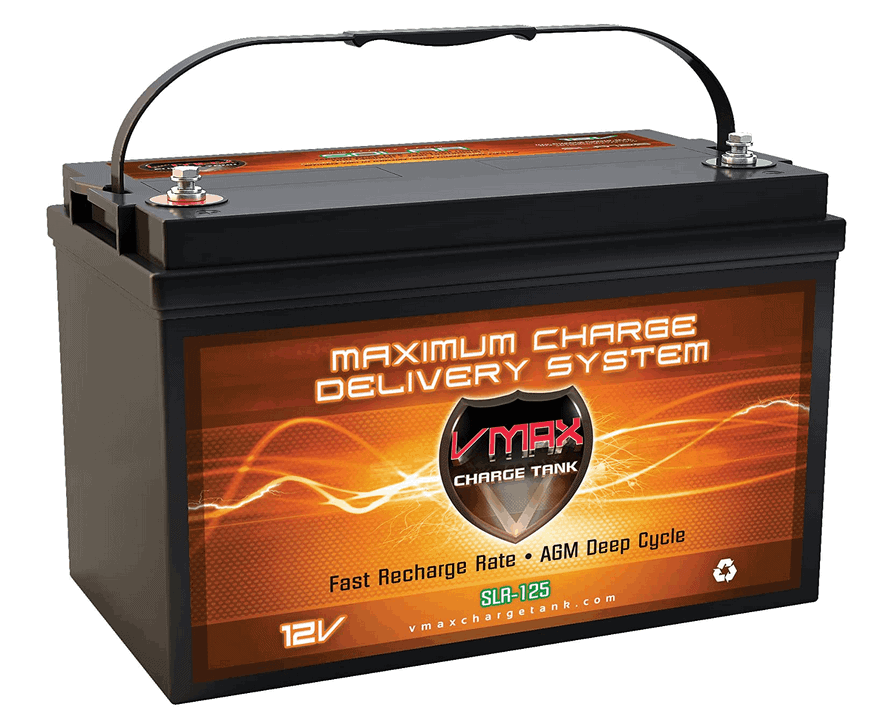
There are three main types of battery storage for solar power. These are lithium-ion, lead acid, and salt water. Each one works slightly differently and has different efficiency percentages.
Benefits of Solar Storage
Reduce Carbon Footprint
Of course, reducing your carbon footprint is a huge benefit. Solar energy is considered a clean, green, and renewable energy source. This allows for better environmental protection and more independence from harmful carbon-based fuels and energy sources such as fossil fuels and coal.
Energy Independence
If you get a big enough solar system and energy storage system, you can be completely off-grid and power-independent.
While not everyone can afford this, you can still rely less heavily on your utility company by investing in solar battery systems. For example, with a storage system, you can still have power, even when the grid is down.
This allows you to still have heat, power important appliances, and run lights. If you have a security system, it can even keep that powered.
Electric Bill Savings
One of the major advantages to homeowners is independence from the grid. While solar panels alone can seriously offset most utilities, peak hours are often when the sun goes down and solar isn’t as useful.
Peak hours are when people are charged higher rates for their utilities since many people are using power at that time. Having a battery system allows you to still pull power that your solar panels have created, but at a later time, that is more beneficial for you.
Quiet Backup Power
When the grid is shut down, the energy storage systems will kick on, preventing power from going to the grid, which keeps any workers safe, while still giving you power until the battery runs out.
It also provides security if you live in an area where power is unstable and can go off without warning, especially during peak times.
Related Articles:
How Much Can a Power Outage Cost?
Power outages are no joke. And with high demand causing blackouts due to the grid being overwhelmed, and constant maintenance, power can shut down a lot. The summer months are the most common reason why the power can shut off in the homes of customers.
This is usually due to high temperatures causing many people to run air conditioning. Since heating and cooling take the most power, this is when the grid is most at-risk of shutting down.
Not only can this be a major inconvenience, but it can put a lot of cost on your shoulders. For example, you may need to invest in generators and always keep fuel around. However, in some states, you can’t even have a gas-powered generator.
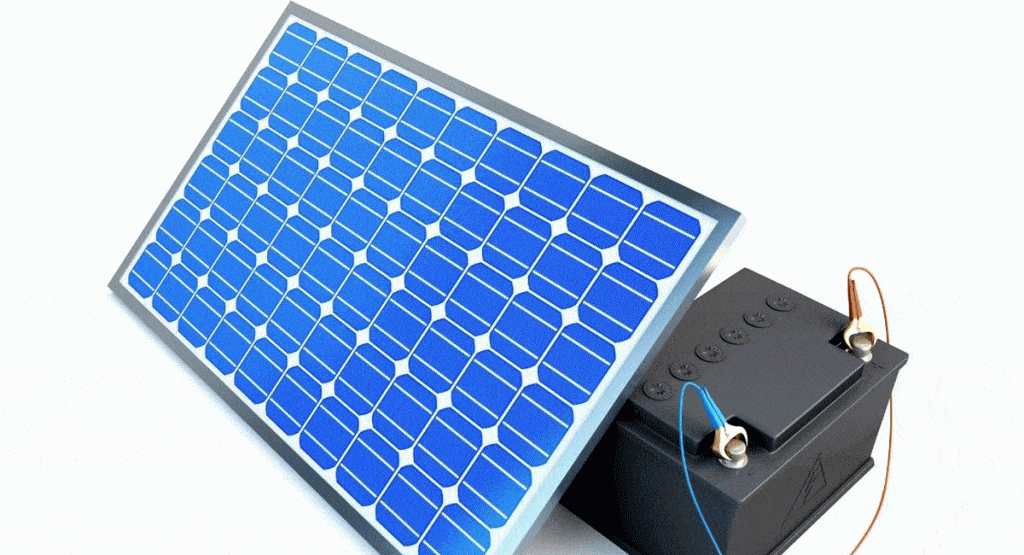
For businesses, estimates are that thousands of dollars are lost an hour due to loss of productivity and revenue.
For homeowners, the estimated loss can be anywhere from $25 to $25,000.
These estimates are highly variable based on the length of the power outage and whether any surges destroy any technologies, if emergency supplies have to be used, if food is spoiled and has to be replaced, or if alternate housing has to be found.
Economics of Solar Storage
Net Metering & Solar Battery Economics
Net metering is a way to get a little more value for your solar panels and a way for the government to provide a few more incentives for people who get solar panels.
Net metering is when you send your solar power back through the grid. The power then gets sent back to you, but only the amount you need. The rest gets used by the utility company.
This provides benefits to both the homeowner and the grid and it allows the grid to have excess power when needed. Plus, the utility company pays you for the power that you don’t use, so not only do you save money on your electricity bill, but you get money back.
Having a battery system allows you to still do this, but your excess solar energy will first go to filling up your battery, and the rest will be sent to the grid.
Time-of-Use Metering & Battery Economics
Time-of-use (TOU) metering depends on energy demand. During peak hours, the rate of electricity goes up. The amount you get paid for your excess electricity depends on what the time-of-use cost is at that moment.
This means that you may get less money for your power.
While having a battery doesn’t eliminate this possibility, it does allow you to reduce the costs of your utilities, by still having power during peak hours even if it is dark or cloudy.
By using a battery, you can draw on saved power during peak hours, which can reduce your bill much further than just having a solar system.
Demand Charges & Battery Economics
A demand charge is a fee that you have to pay on top of your electricity bill to maintain the electricity in your home. This charge is based on how much power you typically use per month, measured in kW.
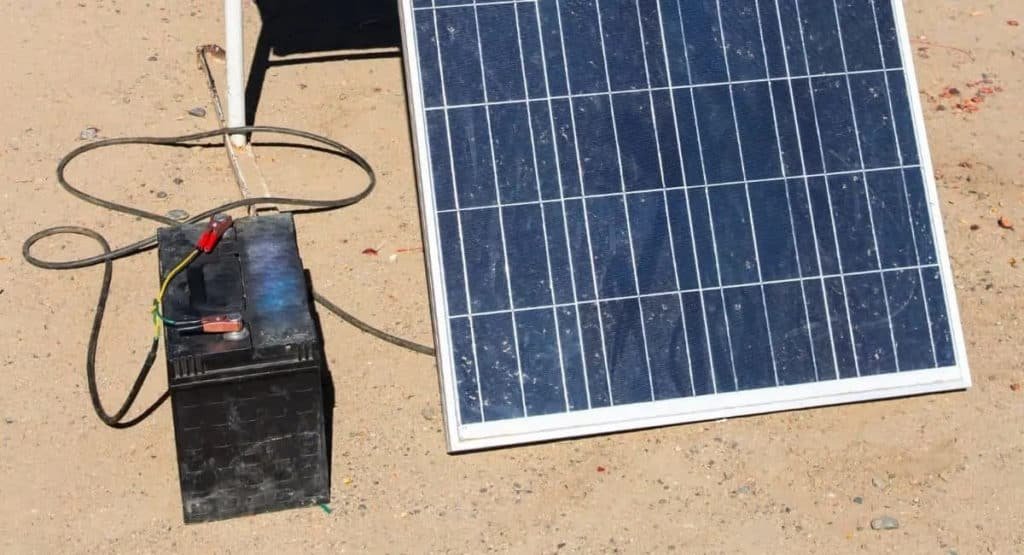
The more power you use at once, and use consistently, the higher your demand charge. This charge can account for anywhere between 30% and 70% of your electricity bill a month.
Having solar panels can reduce your demand, but only at certain times. Having a battery gives you the advantage and control to keep your demand low at all times of the day and year.
How to Choose a Solar Battery
When choosing a solar battery, these are some of the features you want to look at.
- Capacity
- Power
- Efficiency
- Battery type
- Cost
- Lifespan or cycles
- Depth of Discharge (DoD) allowed
- Warranty
- Safety rating
- Reviews of the manufacturer
- If it is compatible with the rest of your system
Types of Solar Batteries for Residential Homes
Lithium-Ion
Lithium batteries are considered to be the best residential batteries available at the moment. They can handle any solar inconsistencies, can handle over 5,000 total cycles of charging and discharging, and you can drain the battery fully.
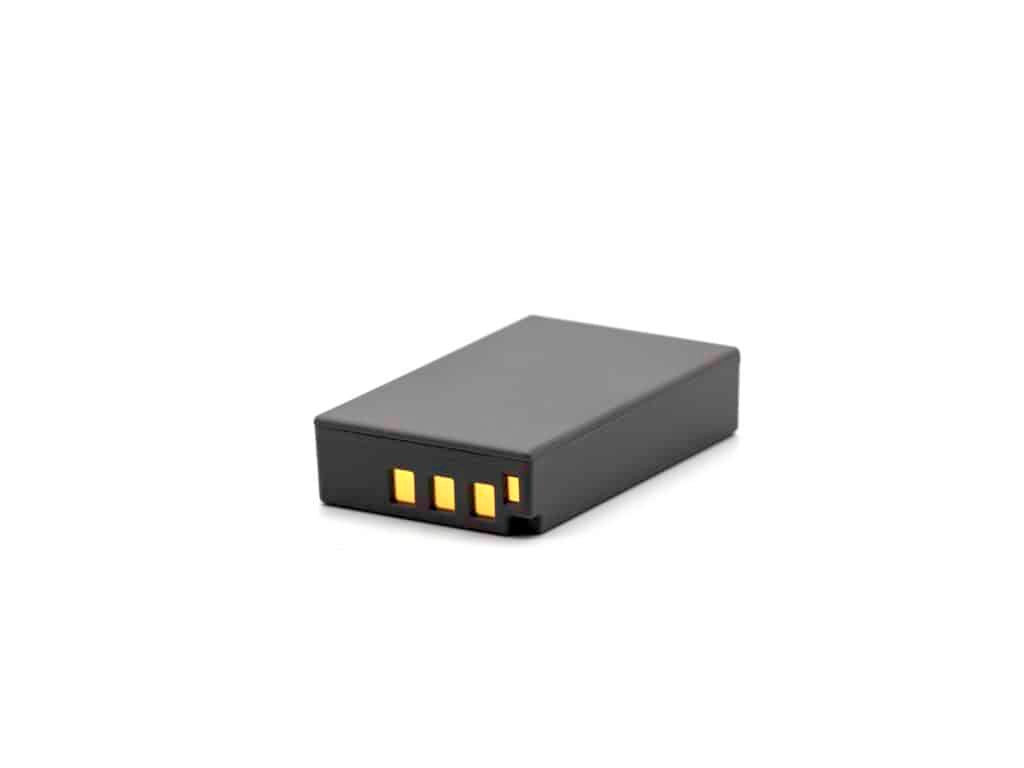
Additionally, they are also more efficient, with around 95% efficiency, and need little to no maintenance.
While this is all great, this does mean that they are very costly, and may easily be outside someone’s budget.
Lead-Acid
Lead-acid batteries are older technology. While they are tested and work great, they aren’t as beneficial or long-lasting as lithium-ion batteries.
They can’t be discharged more than 50% without reducing the longevity of the battery. Lead-acid batteries usually have about 200-900 cycles. This means, with constant use, they can last a few years at most.
Finally, lead-acid batteries have to be checked frequently to make sure they have water in them. Failure to do this can lead to decreased performance and shorter battery life.
However, they are much cheaper than lithium-ion batteries, making them much easier to purchase for someone on a budget.
Saltwater
Saltwater batteries, like lithium-ion batteries, can easily last 5,000 cycles. They also need little to no maintenance and are better for the environment than lithium-ion batteries as they need fewer minerals that can be extracted.
However, they are still costly, and may even be more than lithium-ion batteries. They are also new, so more research and optimization are needed.
Best Companies for Solar Batteries
The best companies to look at for solar batteries are:
- Enphase
- Tesla
- SunPower SunVault
- SunRun
- SunLux
- Battle Born
- Renogy
- Vivint Solar
FAQ
Can you go “off-grid” with a solar battery?
A solar battery is a type of device that stores electricity generated by solar panels for use when the sun is not shining. This can be especially useful for people who want to go “off-grid,” or disconnect from the traditional electrical grid and rely on renewable energy sources like solar panels instead.
Without a solar battery, it would be difficult to go off-grid and have a consistent source of power, as the electricity generated by the solar panels would only be available when the sun is shining. Solar batteries allow you to store excess electricity generated by the solar panels during the day, and use it at night or during times when the sun is not shining.
This makes it possible to have a consistent supply of electricity even when the sun is not shining, which is essential for going off-grid.
What are the benefits of adding a solar battery to your solar power system?
Adding a solar battery to your solar system provides benefits such as:
– Savings on electricity bills
– Fewer demand charges
– Reduced carbon footprint
– Backup power
– Less dependence on the grid
Electricity During Storms, Severe Weather, and Other Power Outages
Lightning strikes, hail, and high winds are just some of the extreme weather and other catastrophic events that may knock off power and degrade the effectiveness of solar panels. People who rely on solar power may find these occurrences annoying and inconvenient since they can dramatically reduce the panels’ capacity to generate electricity.
However, these problems can be lessened by having a battery backup to use as a fallback in the event of a power outage. If the solar panels aren’t producing enough energy because of an outage or because the weather isn’t cooperating, the battery backup system will kick in and provide the needed power. Having this in place may make it so that you always have access to energy, no matter what the circumstances.
How much energy can be stored in a solar battery?
Whenever the sun shines, solar panels collect energy, which is then stored in a battery until it is needed. A solar system’s battery capacity can range from a few kilowatt hours (kW) to tens of kW (kW) or more.
How much energy a solar system can store is mostly dependent on the battery capacity and the solar panel output. One must keep in mind, however, that the capacity of a given solar power system or battery will vary depending on factors like the size of the solar panel array, the kind of battery employed, and the system’s intended usage, to name a few.
How do solar batteries fit into the larger electric grid?
To connect a solar power system to the public power grid, special inverters called “grid ties” are required. They’re made so that your solar panels may charge your batteries and then transfer any extra power back to the grid, all without sacrificing your ability to utilize your batteries in an emergency.
The grid-tie inverter converts the DC power generated by the solar panels into the AC electricity utilized by most common household appliances and electronics. In addition to protecting the system and utility personnel, these solar panels include built-in safety mechanisms that cause them to disengage from the grid in the event of a grid failure.
If you want to connect your solar system to the grid and get the benefits of solar power, a grid-tie inverter is a great option.
How much does it cost to add a solar battery to your home?
Depending on the kind of battery and the requirements of the system, the cost to build a battery backup system for solar panels might vary substantially. Installing and maintaining lithium batteries can cost anything from $7,000 to $14,000.
However, depending on the size and capacity of the battery, other types of batteries, such as lead-acid batteries and nickel-metal hydride batteries, can be significantly cheaper. These are only ballpark figures, and the real costs will depend on things like where you live, how complicated your installation is, and what features you need in your system.
Battery backup systems vary in price depending on the size, kind, and other factors, so it’s better to talk to a professional solar installation who can evaluate your situation and provide you an exact quote.
Are tax credits offered for the purchase of a solar battery?
Certain renewable energy technologies, such as solar panel systems, are eligible for federal tax credits in the United States. Credits like this can be used to reduce the whole price of a solar energy setup, including batteries of any kind and labor to set it up.
The credit is worth different amounts for different technologies and different installation years. For instance, the federal tax credit for solar panel installations will begin at 26% in 2021, decline to 22% in 2023, and then disappear altogether after that year.
You can get these rebates if you install a solar panel system and accompanying batteries and then claim them on your taxes. It’s important to remember that the IRS may make adjustments to these credits at any time, so it’s best to double-check with them often to be sure you have the most up-to-date details.
What is the battery life of a home solar battery?
The battery life of a home solar battery depends on the size of the battery you have, and how much power you are drawing from it at any given time. With so much variability, it is hard to determine exactly how long a battery will last for you.
However, if you are planning to go off-grid, the recommendation from many experts is to get you a battery that can last you a minimum of three days without new power, and at least powering the basics.
What is the lifespan of a home solar battery?
A solar battery’s lifespan is affected by several variables, such as the battery’s kind, quality, how it’s used, and how it’s maintained. Depending on the kind of battery and the environmental circumstances, the average lifespan of a solar battery might range from 5 to 15 years.
Lithium-ion batteries, for example, often last longer than lead-acid batteries. It should be kept in mind, however, that the actual lifespan of a solar battery might vary greatly depending on factors including the rate of discharge, the depth of discharge, and the ambient temperature.
If you want to get the most life out of your solar battery, you should follow the instructions provided by the manufacturer for usage and maintenance and buy a new battery if it shows indications of depletion or failure.
